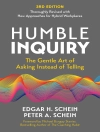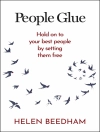`The Sage Handbook of Organizational Behaviour is a fine addition to past works of reference in the field, edited by two prominent scholars who are internationally known. Its approach is both critical and original in many incisive ways, aspiring to a cutting-edge coverage of the core and periphery of OB. Many of the chapter authors stick their necks out and avoid the more obvious, conventional expositions of their topic. It covers a wide range of topics of potential use to both undergraduate and postgraduate students of the subject, as well as academics, researchers and practitioners. It will be of particular interest to those on MBA and DBA courses. It can be strongly recommended as an essential faculty library purchase, as well as a useful tool for individuals interested in having such a guide to the subject at hand′ – Professor Malcolm Warner, Emeritus Fellow, Wolfson College and Judge Business School, University of Cambridge
`This important new Handbook brings together for the first time a collection of major contributions on macro-organizational behaviour. This area of study is concerned with the ways in which the people who inhabit organizations make sense of their situations, contributing to the distinctive character of those organizations through their actions and struggles. The conventional literature, artificially divided between micro organizational behaviour and organization theory, has under-explored this obvious conjunction between people and organizations. Stewart Clegg and Cary Cooper perform a great service in helping to make good the deficiency′ – John Child, Professor of Commerce, Birmingham Business School
`Thorough and comprehensive. Thoughtful critique and new insights′ – Chris Argyris, James B. Conant Professor, Emeritus, Harvard University
In this second volume of The SAGE Handbook of Organizational Behavior , the focus is on macro-organizational behavior, revealing ways in which the person and group affect the organization.
Chapters are written by eminent and upcoming scholars in the field, each presenting on the major issues in organizational behavior as seen with a macro-lens. The Handbook is divided into three parts, the first introducing and framing the field; the second part considering the various organizational processes involved, including learning, teamwork, identity and power, among others, while finally Part Three introduces organizing on a macro-scale, covering topics such as organizational change, design governance and globalization.
The SAGE Handbook of Organizational Behavior: Macro Approaches is an essential resource for researchers and students across management and organization studies.
สารบัญ
Introduction: Why a Handbook of Macro-Organizational Behaviour? – Stewart Clegg
PART ONE: FRAMING THE FIELD: INTRODUCING SOME BIG QUESTIONS
What Do OB Tools and Instruments Do? – André Spicer
What Does Knowledge Work Do? – Tim Ray
Freedom and Constraint under the ′Neo-Liberal′ Regime of Choice – Alan Scott and Richard Weiskopf
Managerialism and Its Discontents – Martin Parker
Positive Organization Scholarship: What Does It Achieve? – Arran Caza and Kim Cameron
PART TWO: MACRO-ORGANIZATIONAL BEHAVIOUR AND IMMANENT PROCESSES
Learning in Practice – Elena P Antonacopoulou
Shaping Organizational Commitment – Robert Roe, Omar Solinger and Woody van Olffen
Organizational Power – Raymond Gordon
On the (Be)Coming and Going of Organizational Change: Prospect and Retrospect in Sensemaking – Ian Colville
Organizational Identity – Andrew Brown
Organizational Conflict – Stephen Ackroyd
Organizational Careers – Kerr Inkson and Yehuda Baruch
Top Management Teams and Team Working – Sarah Mac Curtain and Michael West
Succession Management: Building Talent Across Organizational Generations – Jay A Conger
Leadership – David Collinson
PART THREE: MACRO-ORGANIZATIONAL BEHAVIOUR AND KEY PRACTICES
The Labor Process, Surveillance and the Person in the Sight of the Organization – Graham Sewell
Implementing Employment Equity in Gendered Organizations for Gendered Lives – Judith Pringle, Alison M Konrad and Anne-Marie Greene
Managing Multiculturally in Organizations in a Diverse Society – Gill Kirton
The Organization of Human Resource Strategies: Narratives and Power in Understanding Labour Management in a Context of Fragmentation – Miguel Martinez Lucio
Organizational Moral Responsibility – Carl Rhodes and Alison Pullen
Organizations and Society: Sustainability Deconstructed – Suzanne Benn
Managing Organizational Expressions – Majken Schultz and Mary Jo Hatch
Management Fashion and Organizational Behaviour – Rene ten Bos and Stefan Heusinkveld
PART FOUR: ORGANIZING ON A MACRO-SCALE
Organizational Change Management – David Wilson
We Have Always Been Oligarchs: Business Elite in Polyarchy – David Courpasson
Organizational Design – Gerard Fairtlough and Rosemary Beckham
Projects for Life: Building Narrative Capital for Positive Organizational Change – Arne Carlson and Tyrone Pitsis
Corporate Governance – Rob Watson
เกี่ยวกับผู้แต่ง
Cary L. Cooper is the 50th Anniversary Professor of Organizational Psychology and Health at the Alliance Manchester Business School, University of Manchester. He is a founding President of the British Academy of Management, Immediate Past President of the Chartered Institute of Personnel and Development (CIPD), former President of RELATE and President of the Institute of Welfare. He was the Founding Editor of the Journal of Organizational Behavior, former Editor of the scholarly journal Stress and Health and is the Editor-in-Chief of the Wiley-Blackwell Encyclopaedia of Management, now in its’ 3rd Edition. He has been an advisor to the World Health Organisation, ILO, and EU in the field of occupational health and wellbeing, was Chair of the Global Agenda Council on Chronic Disease of the World Economic Forum (2009-2010) (then served for 5 years on the Global Agenda Council for mental health of the WEF) and was Chair of the Academy of Social Sciences 2009-2015. He was Chair of the Sunningdale Institute in the Cabinet Office and National School of Government 2005-2010. Professor Cooper is currently the Chair of the National Forum for Health & Wellbeing at Work (comprised of 40 global companies eg BP, Microsoft, NHS Executive, UK government (wellbeing lead) , Rolls Royce, John Lewis Partnership, etc.). Professor Cooper is the author/editor of over 250 books in the field of occupational health psychology, workplace wellbeing, women at work, and occupational stress. He was awarded the CBE by the Queen for his contributions to occupational health; and in 2014 he was awarded a Knighthood for his contribution to the social sciences.












